1. He Brought Martial Arts to the Mainstream
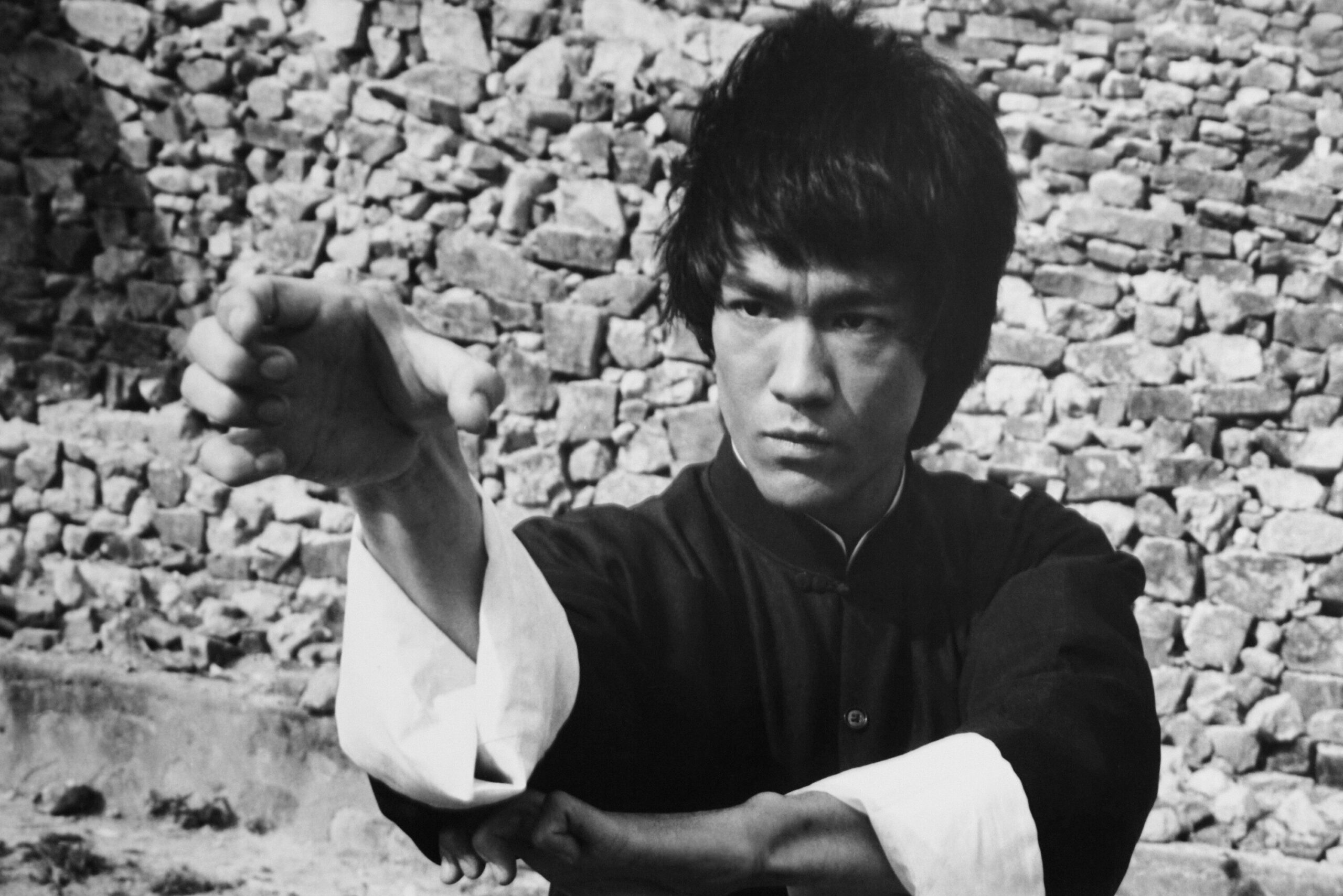
Before Bruce Lee, martial arts were mostly seen as a niche interest in the U.S. His explosive fighting style in movies like Enter the Dragon made it cool, inspiring a whole generation to take up kung fu, karate, and other disciplines. Dojos popped up everywhere, and suddenly, kids and adults alike were practicing high-flying kicks and nunchaku techniques. His impact wasn’t just in Hollywood—his influence made its way into real-life martial arts training, too. Even Chuck Norris, who became a legend himself, credited Lee with shaping his approach. It wasn’t just about fighting; it was about discipline, philosophy, and self-improvement shares Black Belt Magazine.
Martial arts weren’t just a hobby anymore; they became a cultural movement. Even today, UFC fighters and action stars cite Lee as a key inspiration. Without him, the modern mixed martial arts scene might not even exist.
2. He Changed the Way Asian Americans Were Seen in Hollywood
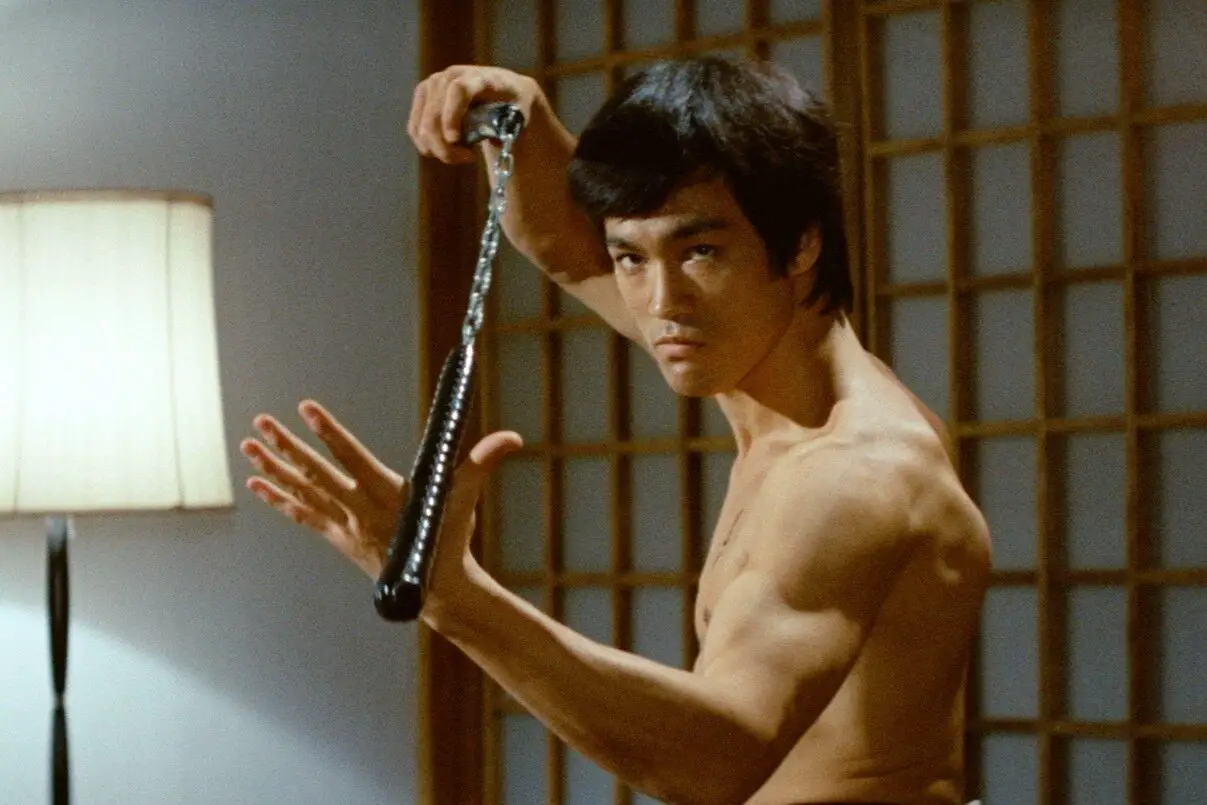
In the ’60s, Hollywood often cast Asian actors in minor, stereotypical roles. Bruce Lee shattered that mold by proving an Asian man could be the lead—and not just any lead, but the most charismatic, physically dominant star on the screen. He wasn’t a sidekick or comic relief; he was the hero. His confidence and presence forced Hollywood to rethink how it portrayed Asian characters, even if it took decades for real progress says Britannica.
Shows like Kung Fu should have been his breakout moment, but when producers cast a white actor instead, Lee took matters into his own hands. He went to Hong Kong, made himself a star, and returned to the U.S. as an undeniable force. His success paved the way for future Asian leads, from Jackie Chan to Simu Liu.
3. He Blended East and West in His Fighting Philosophy
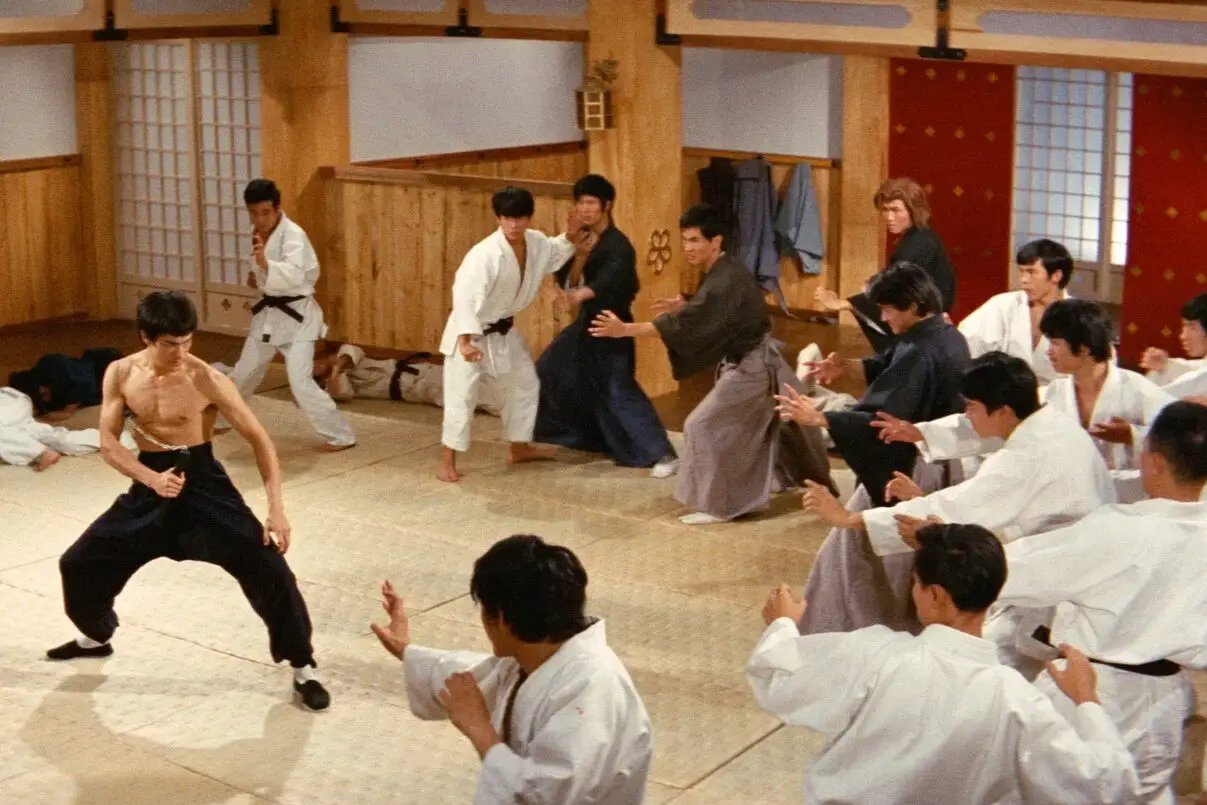
Bruce Lee’s martial arts style, Jeet Kune Do, wasn’t just about fighting—it was about breaking barriers. He studied boxing, fencing, and traditional kung fu, blending them into something entirely new. Before Lee, martial arts were often rigid and traditional, but he encouraged adaptability and personal expression in combat. This mindset influenced everything from action choreography to real-life self-defense training says Newsx.
His philosophy wasn’t just for fighters, either. His ideas about flowing with life, overcoming obstacles, and finding one’s own path resonated deeply with people across cultures. Lee wasn’t just teaching kicks and punches—he was teaching a way of life.
4. He Made Fitness a Lifestyle
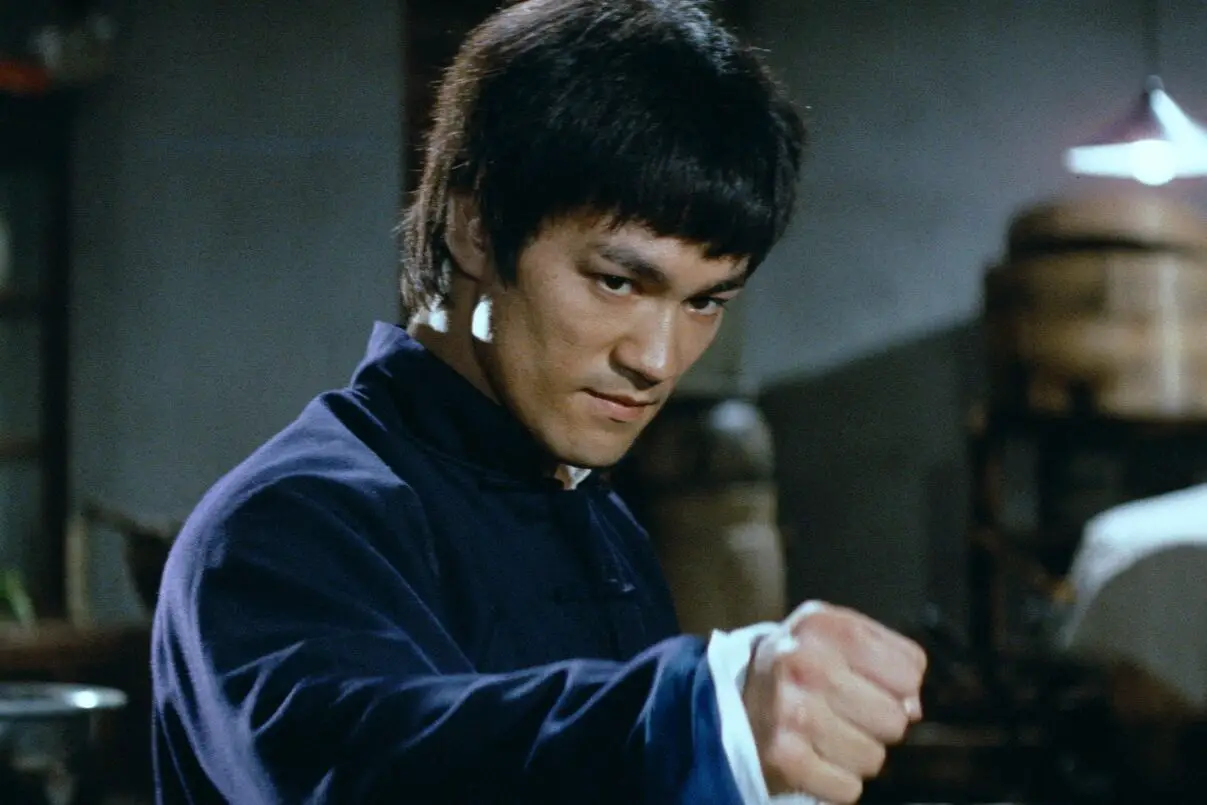
Long before gym culture took off, Bruce Lee was a fitness fanatic. He didn’t just train for fights; he trained for life, focusing on strength, speed, and endurance. His intense workouts, from crazy core routines to one-handed push-ups, inspired bodybuilders and athletes alike. Even Arnold Schwarzenegger admired his dedication.
Lee’s approach to fitness was ahead of its time. He emphasized functional strength—being strong, but also fast and flexible. His diet and workout philosophy helped shift the idea of what it meant to be in peak physical condition adds Far Out Magazine.
5. He Revolutionized Action Scenes in Hollywood
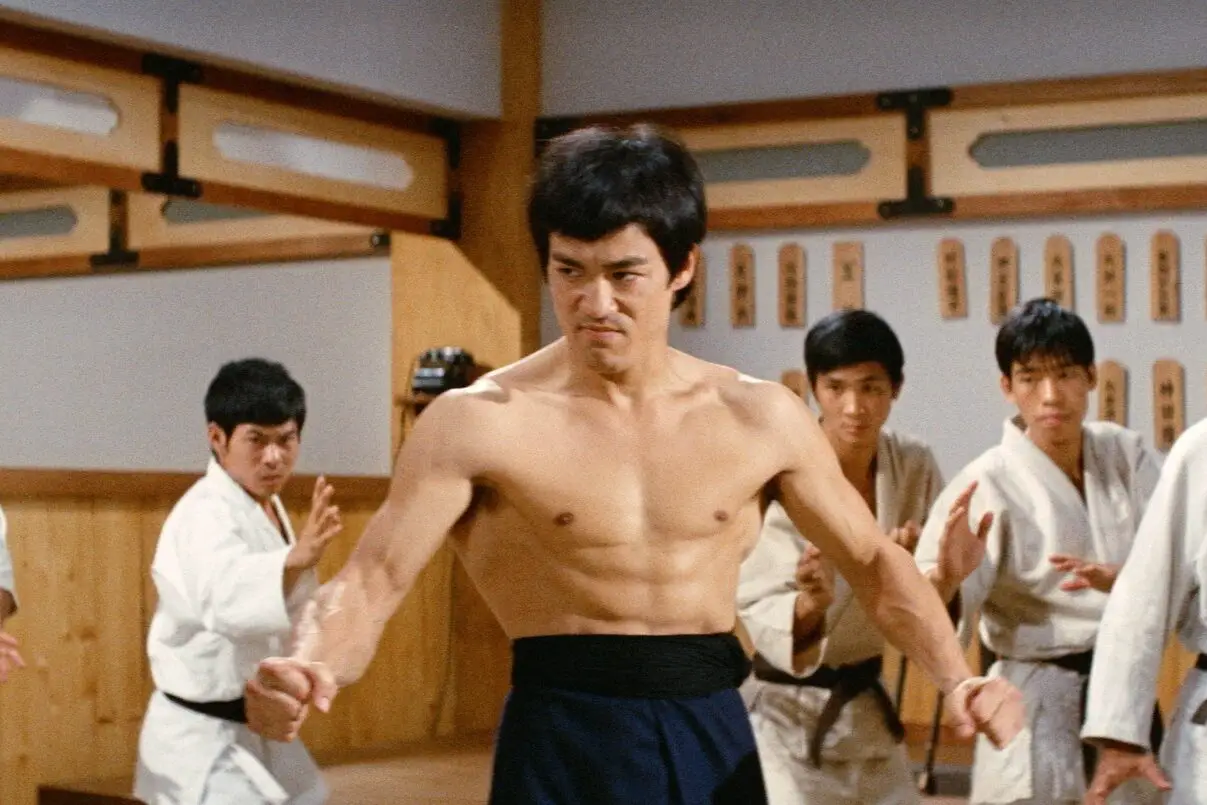
Before Bruce Lee, Hollywood fight scenes were slow, stiff, and overly choreographed. Lee brought speed, realism, and raw intensity to the screen. He understood how to make every move look powerful, using quick cuts and fluid movements that hadn’t been seen before. His influence is still visible in modern action films, from The Matrix to the John Wick series.
Directors took notes from his ability to blend storytelling with combat. Every punch and kick had meaning—it wasn’t just about looking cool, but about conveying emotion and character. Without Lee, action movies wouldn’t be what they are today.
6. He Inspired Hip-Hop Culture
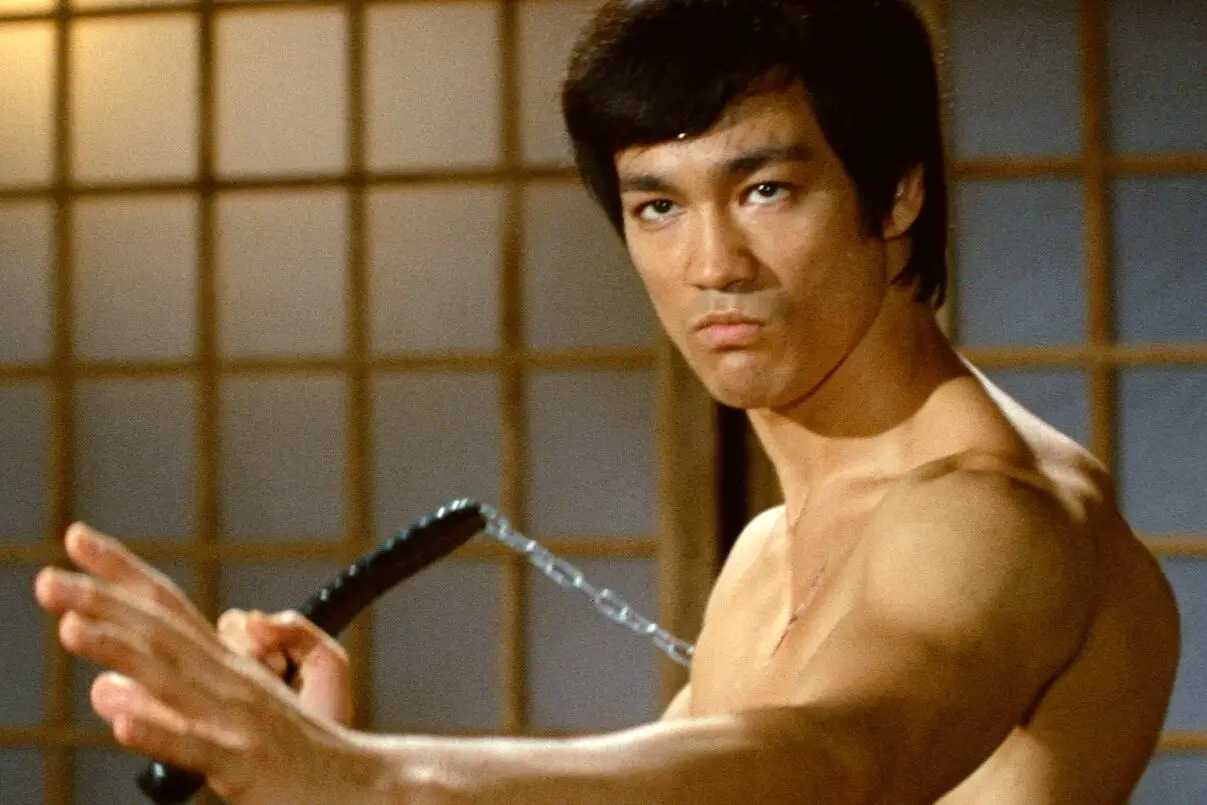
It might seem unexpected, but Bruce Lee had a huge influence on hip-hop. Rappers like the Wu-Tang Clan built an entire aesthetic around kung fu movies and Lee’s philosophy. His movies became a staple in urban culture, symbolizing strength, perseverance, and rebellion. His famous one-inch punch even became a metaphor in rap lyrics.
Beyond the music, breakdancing took inspiration from his quick, acrobatic movements. Lee’s ability to move seamlessly and use his body as a weapon translated into a whole new form of street art.
7. He Brought Eastern Philosophy to the West
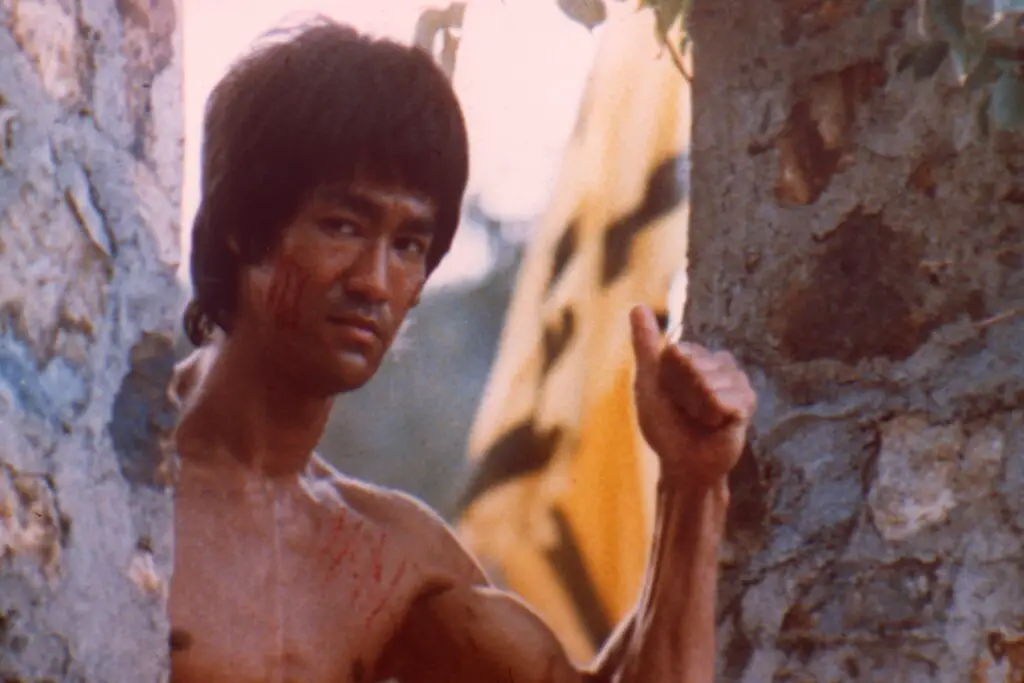
Bruce Lee wasn’t just a fighter; he was a thinker. He introduced millions of Americans to Taoist and Zen philosophies, weaving them into his teachings and interviews. His famous “Be water” speech wasn’t just about martial arts—it was about life itself. He made deep, ancient ideas accessible to everyday people, helping them see strength in adaptability.
His books and interviews became essential reading for anyone interested in self-improvement. He made Eastern philosophy cool, paving the way for mindfulness, yoga, and even modern self-help movements.
8. He Helped Break Racial Barriers in Sports
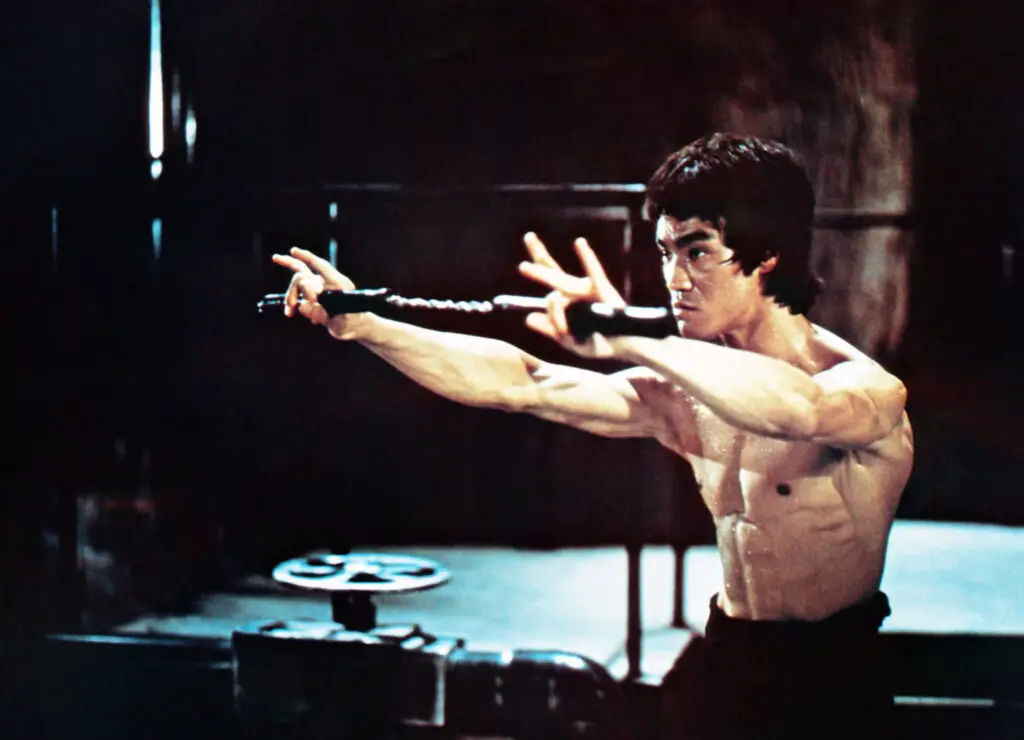
At a time when racial segregation was still a major issue, Bruce Lee trained students from all backgrounds. He faced backlash for teaching martial arts to non-Asians, but he didn’t care. He believed skill and discipline should be available to anyone willing to learn. His students included actors, athletes, and even top-level fighters.
Lee’s inclusive attitude helped shift the conversation around race and sports. He proved that greatness wasn’t about ethnicity—it was about dedication and talent.
9. He Created One of the Most Recognizable Screams in Cinema
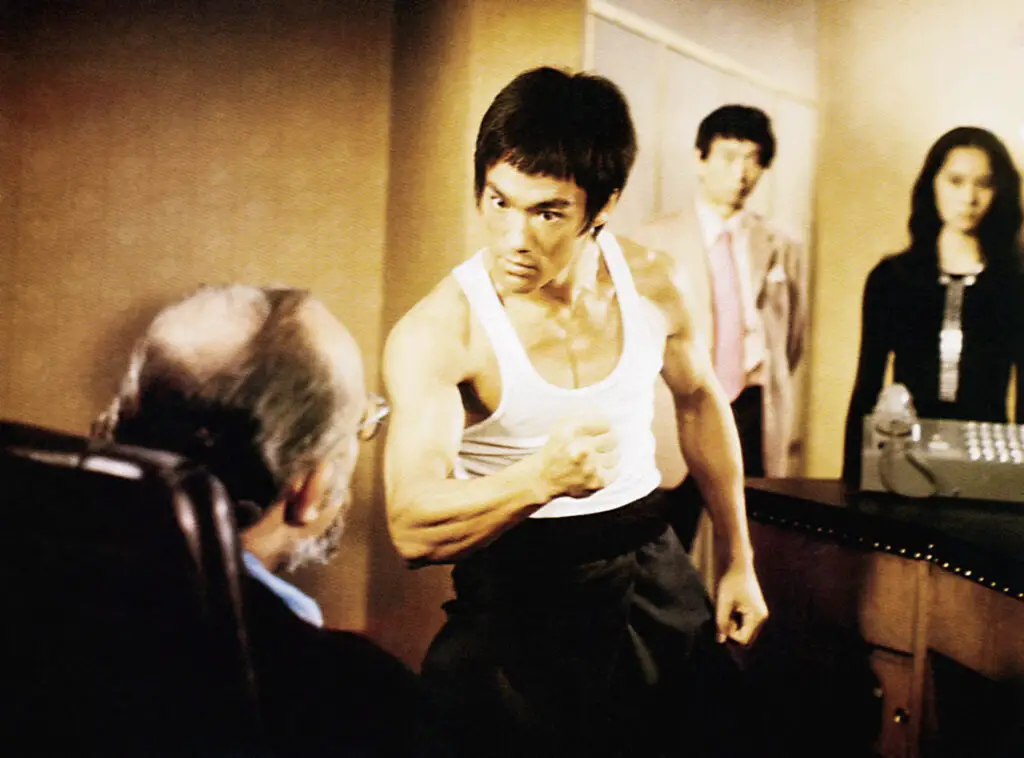
That high-pitched battle cry? That’s all Bruce Lee. His iconic yells became just as legendary as his moves. His screams weren’t just for show—they were rooted in martial arts breathing techniques, helping generate power. The sound itself became instantly recognizable, turning into a signature that action stars still try to replicate.
It’s hard to watch a fight scene today without hearing an echo of Lee’s influence. His raw energy made action feel alive.
10. He Inspired Generations of Athletes
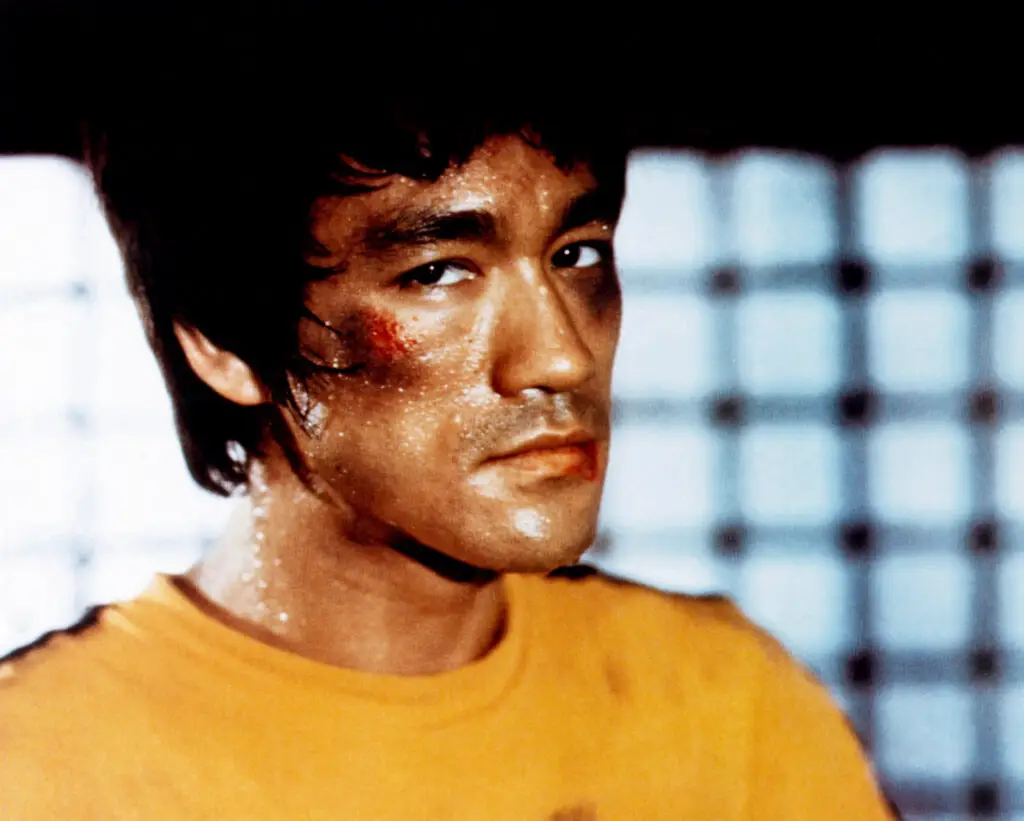
Bruce Lee wasn’t just admired by fighters—athletes across all sports saw him as the ultimate example of discipline and commitment. Basketball players, football stars, and even Olympic competitors have cited his influence. His workout routines and mental approach to performance were groundbreaking.
Michael Jordan, Kobe Bryant, and countless others studied his mindset. His legacy isn’t just in martial arts; it’s in the very idea of pushing the limits of human potential.
11. He Helped Popularize Nunchaku
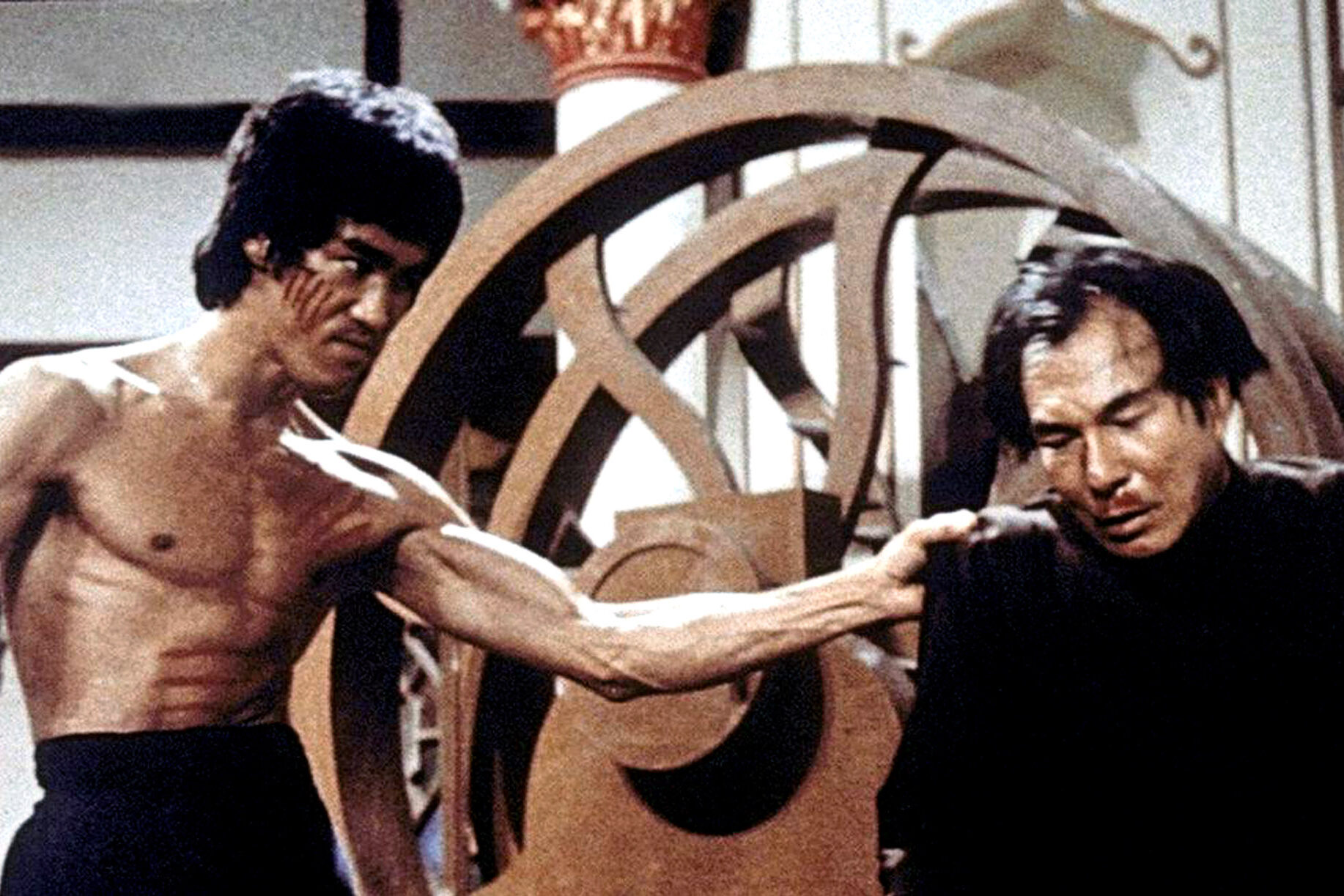
Most people had never even heard of nunchaku before Bruce Lee started swinging them around. His lightning-fast moves in Enter the Dragon made them one of the most famous martial arts weapons ever. Suddenly, everyone wanted a pair, even if it meant hitting themselves in the face a few times while learning.
Martial arts schools began incorporating them into training, and they became a pop culture staple. Even Teenage Mutant Ninja Turtles owes a debt to Lee for making them iconic.
12. He Inspired Comic Book Characters
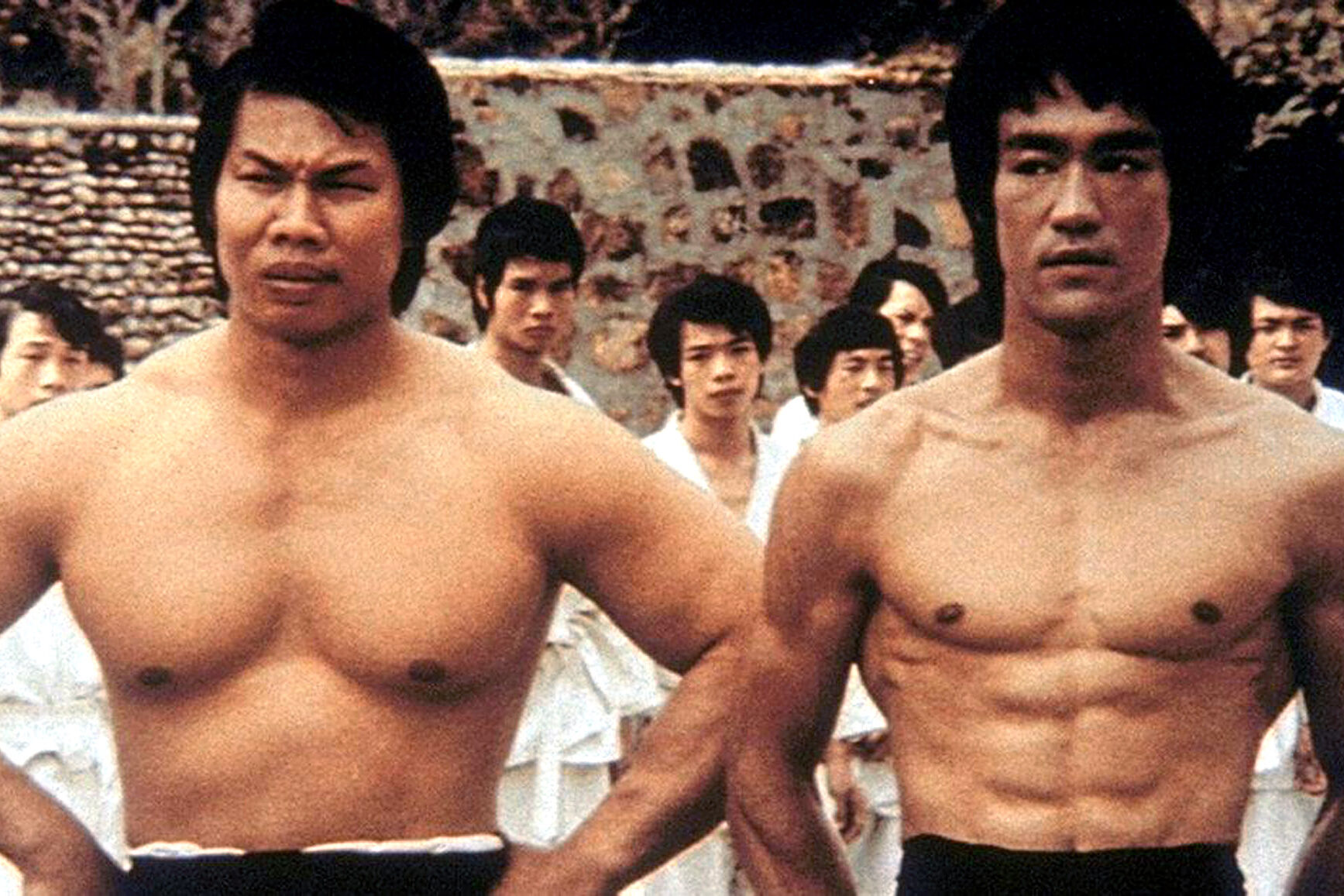
Ever wonder where the fast, deadly martial artist superheroes came from? Bruce Lee was the blueprint. His look, style, and energy influenced characters like Shang-Chi, Iron Fist, and even elements of Batman’s fighting skills. Marvel’s Shang-Chi was directly inspired by Lee, from his movements to his philosophy. Even outside of comics, video games like Street Fighter and Tekken took clear inspiration from his fighting style. His impact can be seen in characters like Liu Kang from Mortal Kombat and Fei Long from Street Fighter.
Lee’s real-life presence was so dynamic that artists and writers couldn’t help but bring it into their stories. His blend of power, speed, and charisma made him the perfect template for a heroic figure. Even today, action-packed comics and animated series continue to channel his spirit. If a hero fights with precision, speed, and philosophical depth, there’s a good chance Lee’s influence is behind them.
13. He Made Philosophy Cool
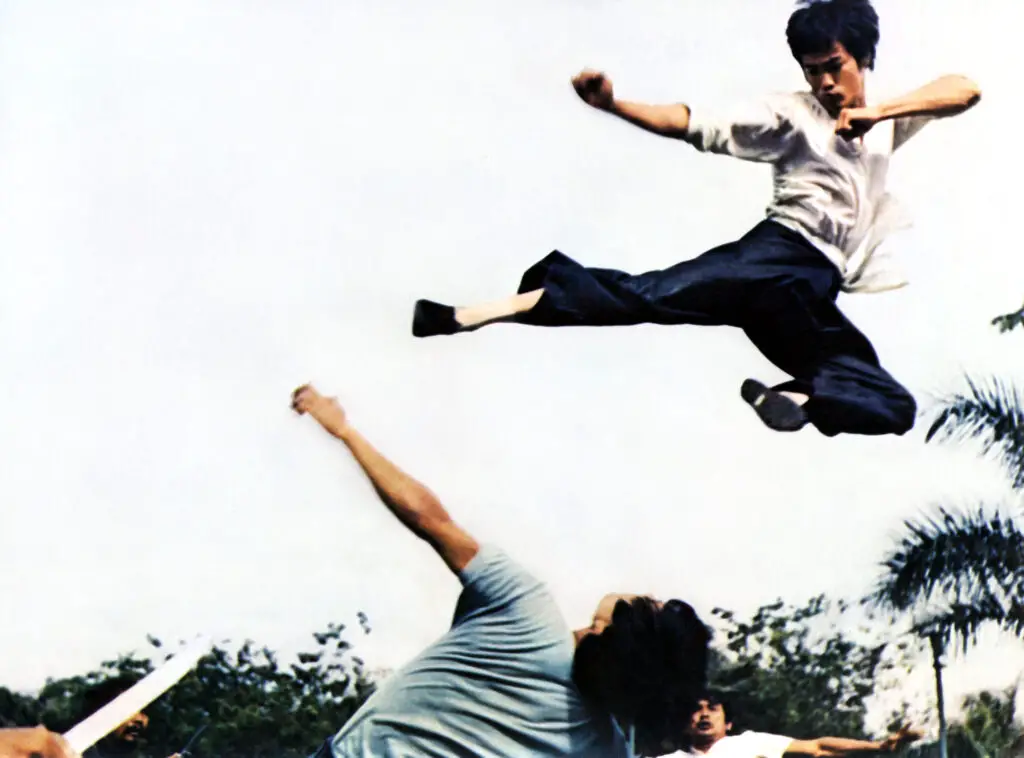
Most action stars aren’t known for deep thoughts, but Bruce Lee was different. He spoke about life, struggle, and the importance of self-discovery. His ideas about self-improvement, overcoming adversity, and being adaptable became just as popular as his fight scenes. His famous quote, “Be water, my friend,” is still widely shared as a metaphor for resilience and flexibility. His books and interviews were filled with wisdom that extended beyond martial arts.
He wasn’t just a tough guy—he was a thinker, and that made him even more compelling. His words resonated with people who weren’t even martial artists, influencing everyone from business leaders to musicians. Today, his philosophy is found in self-help books, motivational speeches, and even therapy sessions. Few celebrities have blended action and intellect the way he did, proving that true strength comes from both the body and the mind.
14. He Proved That Size Doesn’t Matter
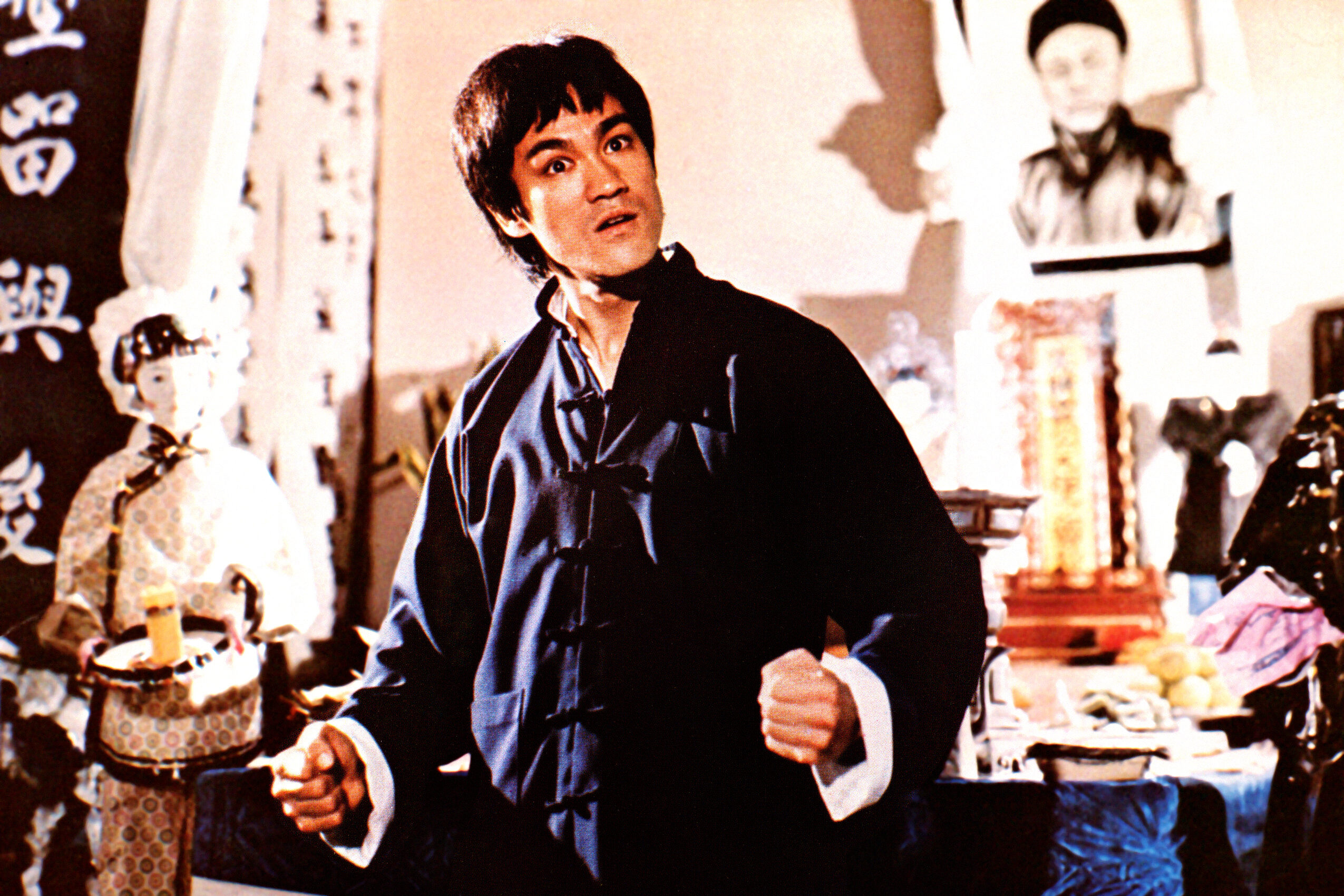
Bruce Lee wasn’t the biggest guy in the room, but he was always the most formidable. In a world where action heroes were often towering muscle-bound figures, Lee showed that speed, skill, and intelligence could overcome brute strength. He weighed around 135 pounds, yet he moved with such precision and power that he could knock down much larger opponents with ease. His famous one-inch punch demonstrated that technique and energy control were just as important as raw strength.
This changed the way people thought about self-defense and combat. Smaller fighters, whether in martial arts or professional sports, looked to Lee as proof that they could compete at the highest level. His influence is still felt today in boxing, MMA, and other combat sports, where agility and technique often outweigh sheer size. Beyond fighting, he became a symbol of how mental and physical sharpness can overcome any obstacle, proving that greatness isn’t about stature—it’s about mastery.
